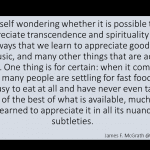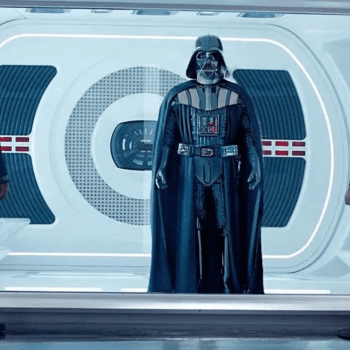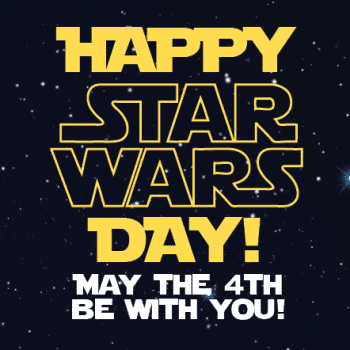Another blog post from a long time ago, on a blog far far away, written when I was still looking forward to watching Star Wars Episodes IV-VI again in light of Episodes I-III. Although having seen the prequels first spoils the surprise when Luke learns that Darth Vader is his father, knowing it beforehand creates a different sort of dramatic tension: Vader tortures Leia and pursues Luke, and the viewer watching the episodes starting with Episode I will ask “Are they ever going to realize?” (Lucas mentions this in a recent interview in Billboard magazine).
Other new tensions are created too, for the viewer watching them in this order. When Luke goes to Dagobah, we will recognize Yoda before Luke does, but we will also understand his concerns when he hesitates to train Luke, and says (as he once did about Anakin) that he is too old. We also feel along with Yoda and Obi-Wan Kenobi as Luke prepares to leave Dagobah before his training is complete, because of his attachment to his friends. Furthermore, as we watch Luke lose his hand to a Sith lord, we wonder whether he will follow in his father’s footsteps. The turning point in Return of the Jedi has that much more force when we watch Luke make a crucially different choice than his father did: having exacted ‘an eye for an eye’ from his father, Luke does not go on to kill him, the way his father killed Count Dooku many years before.
For a viewer watching the movies in this order, Vader is never mistaken for a machine – he is always what the very human Anakin Skywalker has become. And so watching Vader witness the Emperor’s lightning killing his son, we can now better imagine the thoughts going through Vader’s mind. When I faced a similar confrontation between Mace Windu and Palpatine, did I make the right choice? I did what I did to save Padme, and I didn’t, but here is the son that Padme bore to me, who has her eyes. What choice will I make this time?
This experience might usefully be compared to someone who has read the New Testament then going back to read the ‘Old Testament’, the Jewish Scriptures. When they return to the story that is more familiar to them, hopefully they will spend less time reading meanings from the new back into the old, and more time seeing that the story that they are reading is part of a much larger and longer one, and knowledge of that earlier story shines new light and adds deeper meaning to the stories you grew up with.













